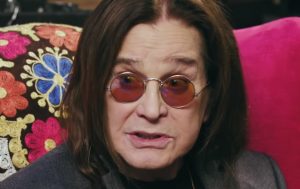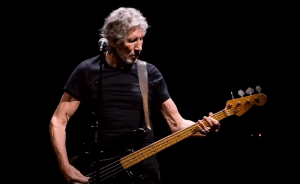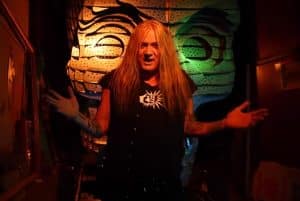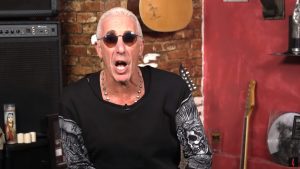What The Bon Jovi Documentary Didn’t Include From The True Story
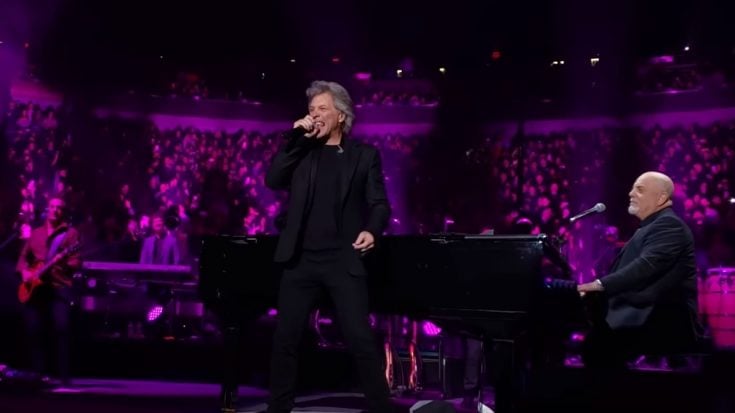
Jon Bon Jovi and Billy Joel live in 2020 - JOELFN / Youtube
The 80s! A decade of excess, rebellion, and of course, unforgettable rock anthems. Hair bands ruled the airwaves, with their teased up locks, face paint, and power ballads. Bon Jovi was no exception, becoming one of the biggest bands of the era.
Their album Slippery When Wet was a cultural phenomenon, selling millions of copies and solidifying their place in rock and roll history.
But there’s more to Bon Jovi’s story than meets the eye. The Hulu documentary might have captured the highlights, the roar of the crowds and the chart-topping hits. But what about the behind-the-scenes struggles, the creative clashes, and the untold stories that shaped the band we know today?
https://twitter.com/BonJovi/status/1783546038491460072
One Surprising Fact From The Documentary
The new Hulu documentary, Thank You, Goodnight: The Bon Jovi Story, sheds light on many fascinating aspects of the band’s journey. One surprising detail is Jon Bon Jovi’s lifelong friendship with Bruce Springsteen, a fellow New Jersey native.
Bon Jovi himself downplays this connection, stating to USA Today, “I’ve just known the guy for 45 years and he happens to be like a big brother.”
This five-hour documentary delves deep into Bon Jovi’s history. It takes viewers from the band’s formation to the present day, exploring both their triumphs and challenges. As Bon Jovi himself aimed for honesty, the question arises: did the documentary leave anything significant out?
The Absence of Alec John Such’s Story
The documentary may be extensive, but one surprising omission is Alec John Such, the original Bon Jovi bassist. Such, who played on many of their iconic tracks, left the band in 1994 for a quieter life and later managed the group 7th Heaven.
Despite his passing in 2022, there seems to be no bad blood. Bon Jovi’s tweets remember Such fondly, and their 2018 Rock & Roll Hall of Fame reunion speaks volumes.
The reason for his absence in the documentary is simply timing. According to Jon Bon Jovi, filming began shortly after Such’s passing, making an interview impossible. Bon Jovi assured The Hollywood Reporter it wasn’t intentional, describing Such’s death as “the first time we faced mortality. One of us passed. It was one of the guys.”
Lack of Outside Perspective
Though Thank You, Goodnight boasts a stellar line-up of interviews with band members past and present, it misses a crucial element: independent voices. The documentary relies solely on those directly involved in Bon Jovi’s story.
This raises the question of objectivity. While the founding members are undoubtedly the experts on their own journey, a well-rounded documentary should also consider outside perspectives. How did Bon Jovi influence the music scene? What impact did they have on fans and the broader music industry?
Thank You, Goodnight does a fantastic job telling Bon Jovi’s story from the inside out, but one can’t help but wonder if the inclusion of music critics, industry experts, or even dedicated fans might have painted a richer picture of the band’s legacy.
Missing the Other Half
“Thank You, Goodnight” focuses heavily on the male perspective of Bon Jovi’s journey. Dorothea Bongiovi, Jon’s wife, is the sole woman interviewed, offering a valuable insider’s perspective. However, the documentary misses a crucial voice: that of their dedicated female fanbase.
Biographer Bryan Reesman highlights the importance of female fans to Bon Jovi’s success. The band struck a chord with women in the 80s, offering an exciting and approachable brand of rock. This core fanbase grew alongside Bon Jovi, their music evolving with them. Including these fans’ voices would have provided a richer and more nuanced portrayal of the band’s impact.
Imagine the documentary exploring the connection between Bon Jovi’s music and female fans. How did the band shape their experiences? Including this perspective would have created a more complete picture of the band’s legacy.
Richie Sambora’s Departure Shrouded in Mystery
Thank You, Goodnight includes an interview with Richie Sambora, a surprising choice given his abrupt exit from the band in 2013. Rumors swirled as to why, and Sambora cited missing his daughter’s childhood due to touring.
Jon Bon Jovi insists there’s no animosity, and their 2018 Rock & Roll Hall of Fame reunion confirms this. He told People, “There was nothing but love… He had to deal with his other issues.” However, things seem to have gone sour during the documentary creation.
Sources close to Sambora claim he stopped watching after three-quarters, unhappy with the portrayal of his departure. They say he felt excluded from telling his truth. “He disagrees with how they framed his departure,” an anonymous source stated, emphasizing that Sambora prioritizes happiness over money.




